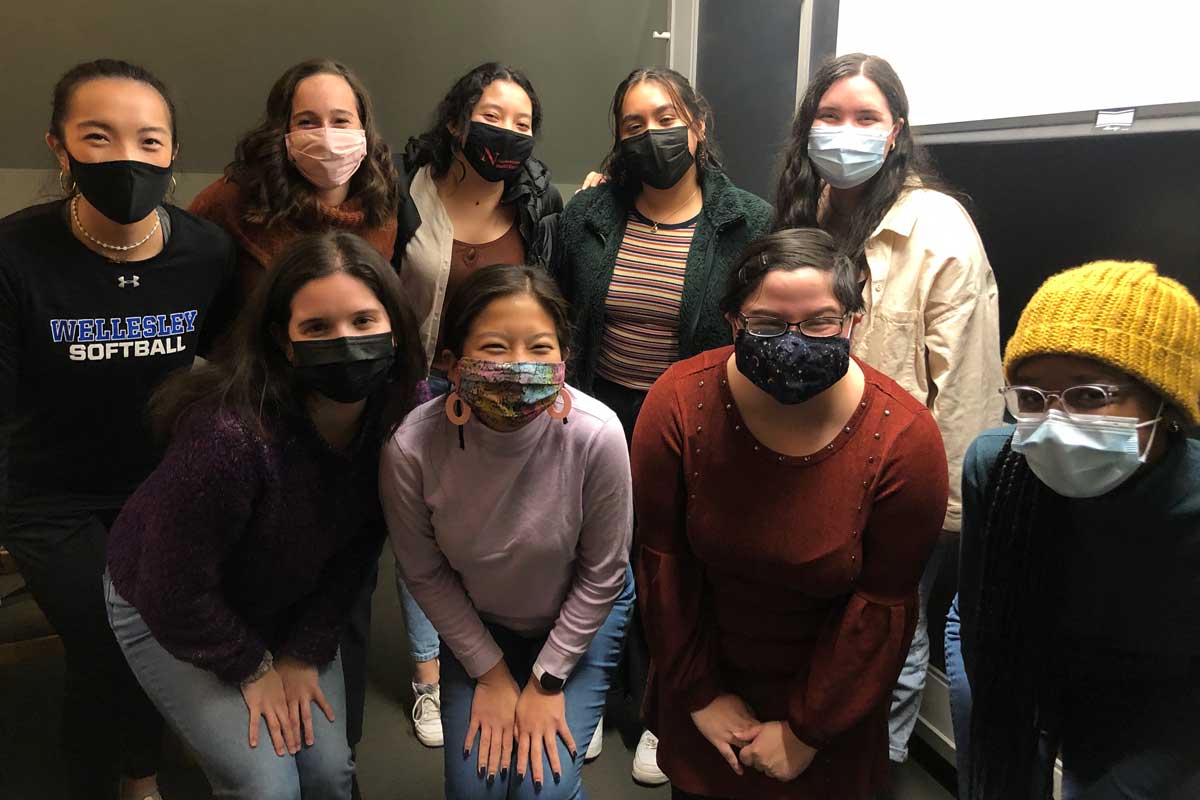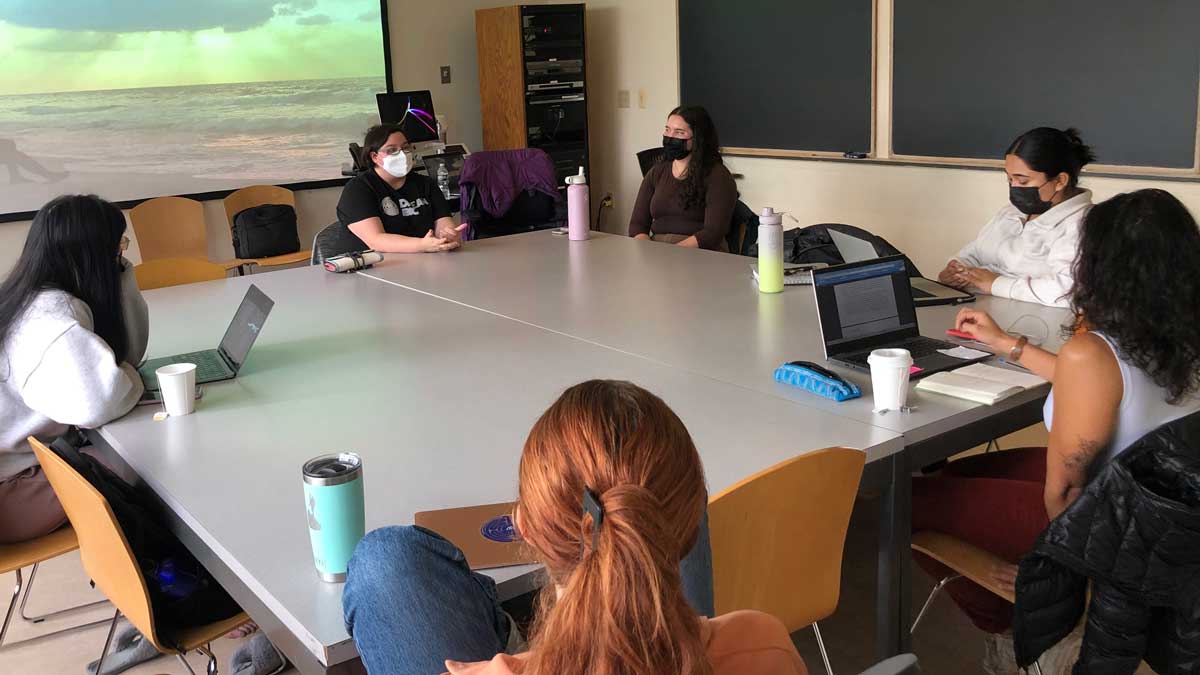
For the past couple years, Senior Research Scientist Linda Charmaraman has taught a Calderwood Seminar in public writing for Wellesley College juniors and seniors. The interdisciplinary course is focused on social technologies and adolescent development, and teaches students how to transform research into written pieces that appeal to the general public.
“Learning how to write in plain language for non-academic audiences is such an important skill,” said Charmaraman, who is the director of WCW’s Youth, Media & Wellbeing Research Lab and a visiting lecturer in Education Studies. “In particular, the translation of research for non-expert audiences is critical to educational and social science research, practice, and policy. The seminar also emphasizes the art of sharing drafts, offering and receiving constructive critiques, and how to creatively collaborate with others on topics of personal importance.”
Calderwood Seminars are part of a program developed by Professor David Lindauer of the Economics Department at Wellesley College, and are now implemented at other liberal arts institutions as well. Billed as teaching “writing for the real world,” the seminars help students pull together the expertise they have developed in their majors and use it for the greater good through public writing. The courses are supported by a generous endowment from the Calderwood Charitable Foundation, which was established by Stanford Calderwood in 1968.
 Charmaraman’s class aims to help students reflect on what constitutes effective public writing and how it influences our perspectives on research related to educational technologies, social media, adolescent development, and identity. Students work on writing with greater clarity, precision, and engagement, while exploring the role of social technologies in adolescents’ lives and how public perception can influence how these technologies are used, valued, or feared. Students collaborate on drafting and editing pieces each week, including educational policy briefs, op-eds, e-newsletters, social media messaging campaigns, and researcher interview profiles. Guest speakers, from writing coaches to media relations managers to academic researchers, provide sage advice as writing mentors.
Charmaraman’s class aims to help students reflect on what constitutes effective public writing and how it influences our perspectives on research related to educational technologies, social media, adolescent development, and identity. Students work on writing with greater clarity, precision, and engagement, while exploring the role of social technologies in adolescents’ lives and how public perception can influence how these technologies are used, valued, or feared. Students collaborate on drafting and editing pieces each week, including educational policy briefs, op-eds, e-newsletters, social media messaging campaigns, and researcher interview profiles. Guest speakers, from writing coaches to media relations managers to academic researchers, provide sage advice as writing mentors.
“This was my favorite class at Wellesley,” one former student wrote in their evaluation. “The course is incredibly well designed with different types of assignments with writing skills that are all very relevant… Dr. Charmaraman made sure that we looked at a breadth of sources—from academic research to pieces we should try to emulate. This course covered so much, all of which was so valuable.”
Blog posts written by several of Charmaraman’s students have been published on WCW’s blog, Women Change Worlds: On(line) Identity: Social Media is Essential for LGBTQ Youth by Carolyn Bacaj and Mikhaela Andersonn and The Unique Struggles and Triumphs of Latinx Adolescents Using Digital Technology by Jennifer Miranda and Bri Vigil.
Charmaraman teaches the course, called Social Technologies & Adolescent Development, each fall.
January 19, 2023

